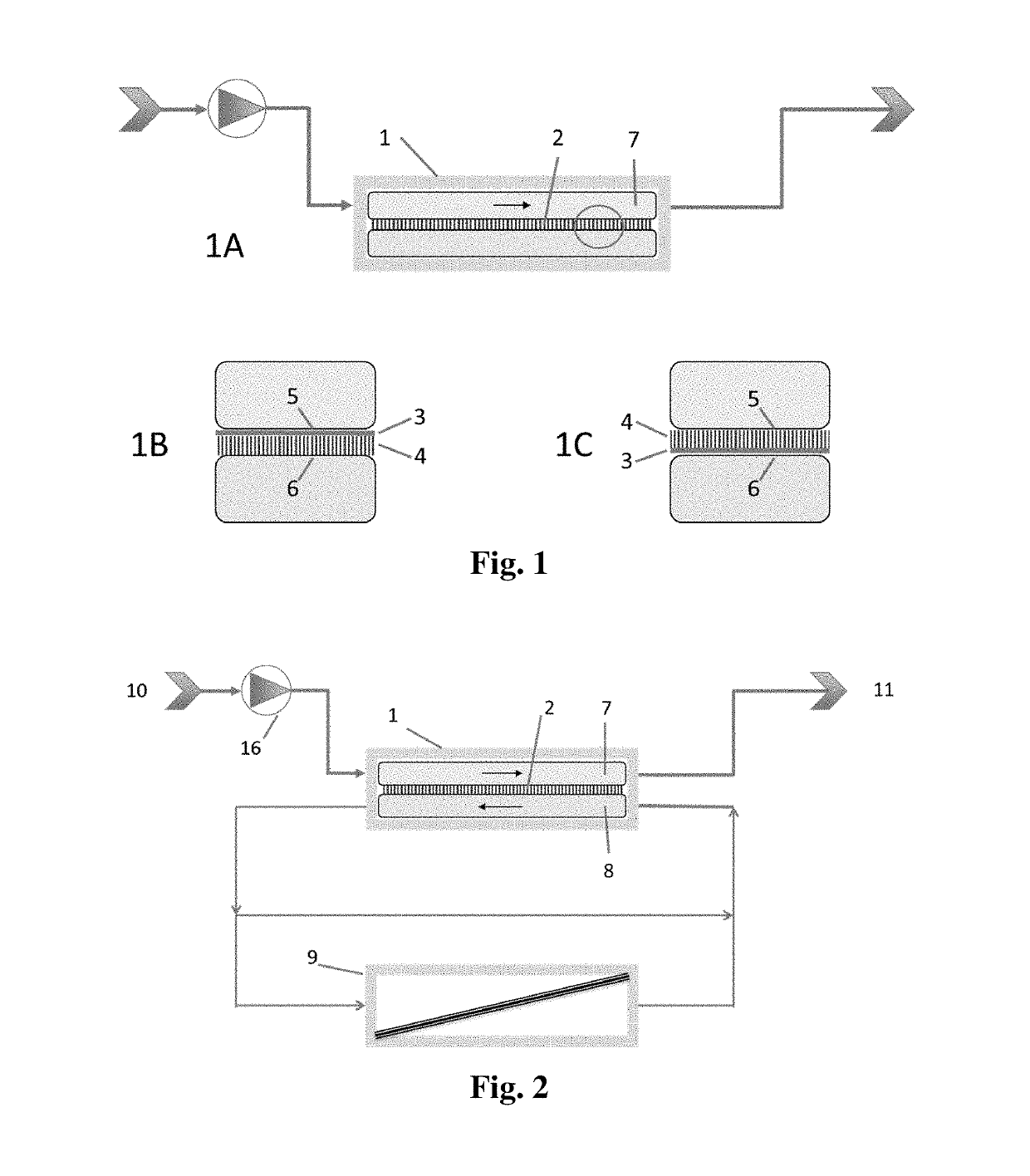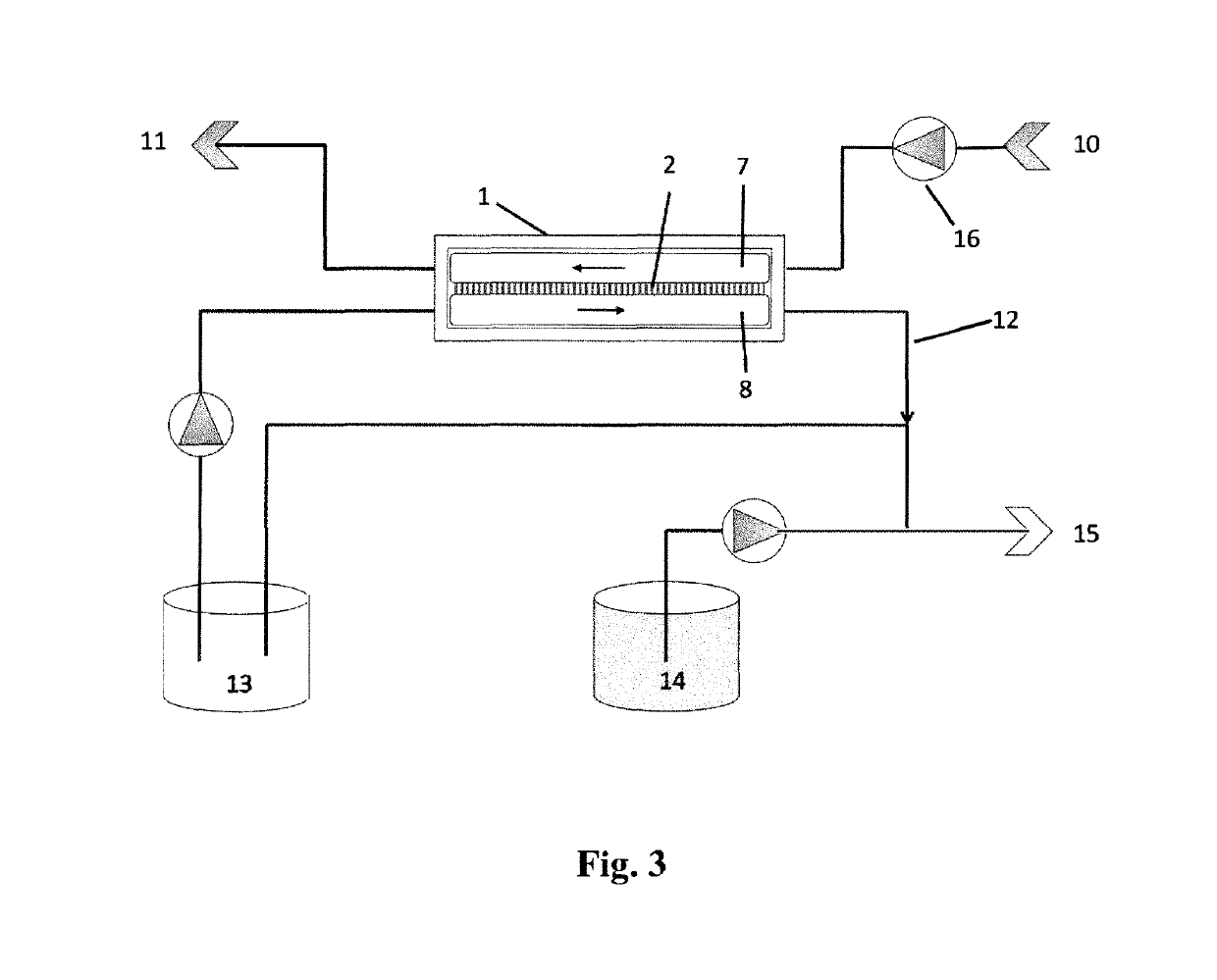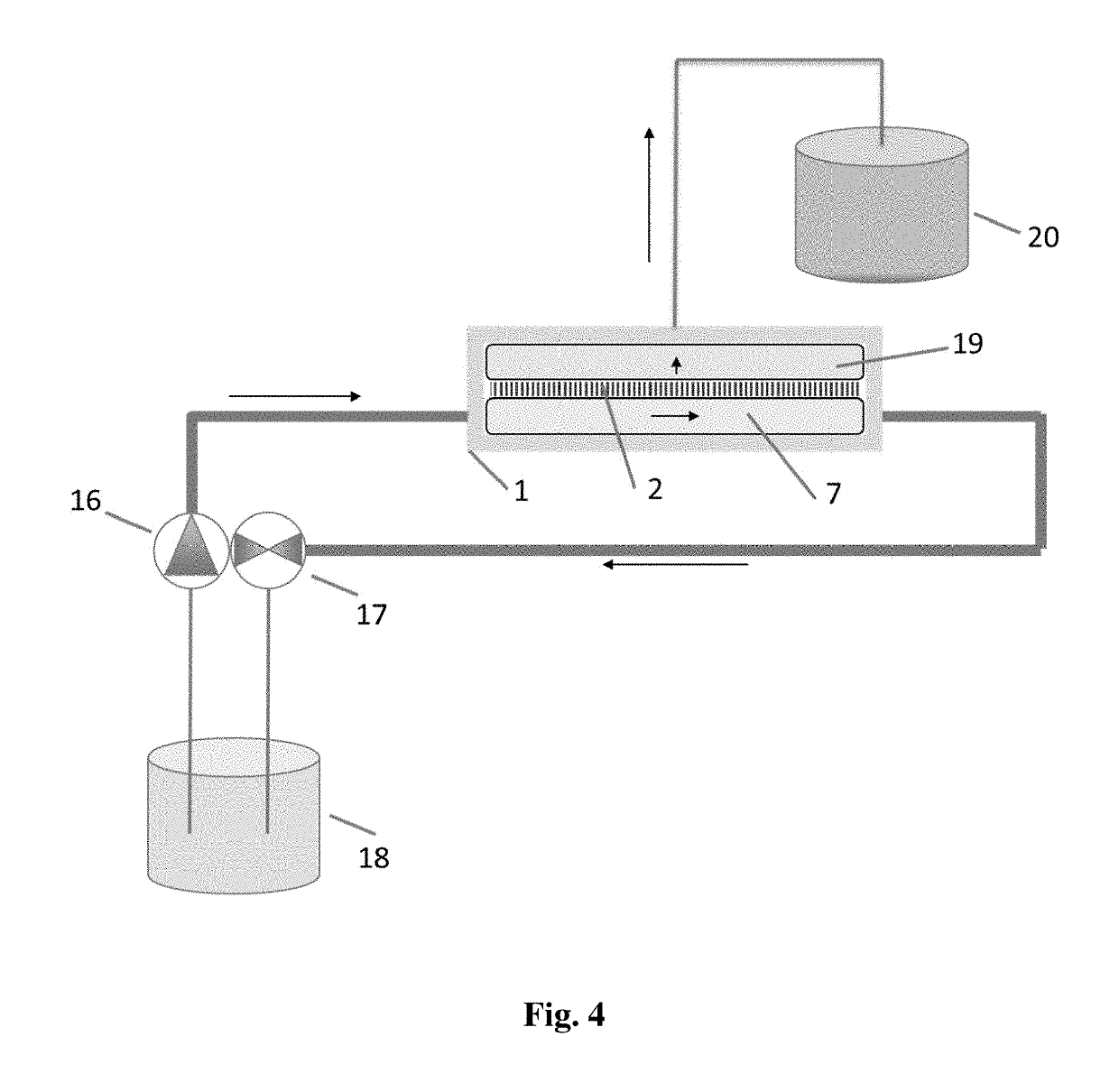Systems for water extraction
a water extraction system and water technology, applied in membrane technology, reverse osmosis, membranes, etc., can solve the problems of low boron filtration efficiency, insufficient selectiveness insufficient energy consumption of water extraction techniques, so as to achieve high salt rejection, low energy consumption, and high water flux
- Summary
- Abstract
- Description
- Claims
- Application Information
AI Technical Summary
Benefits of technology
Problems solved by technology
Method used
Image
Examples
example 1
r Removal of Boron Contamination in a Freshwater Source Using FO and RO
[0112]FIG. 4 shows a system for water extraction with boron removal using a Washguard SST pump (16) and an osmotic cell (Sterlitech CF042) for RO filtration, where said cell holds a 5.7 cm×11.3 cm TFC-AqpZ membrane prepared as described herein, and wherein a boron contaminated fresh water feed source created by dissolving boric acid to about 5 mg / L B in tap water having a mean content of 187 μg / L B, 0.20 μg / L As, 113 mg / L Ca, pH=7.5 (source: HOFOR, Copenhagen 2011) is filtered through said membrane during RO operation mode at a pressure of 125 psi. The resulting permeate can be sampled for ICP-MS boron elemental analysis, e.g. according to Nagaishi & Ishikawa (2009), giving a calculated rejection range based on the obtained analytical data of from about 45% to about 55% rejection comparable to the results obtained by Kim et al. 2012.
[0113]FIG. 2 shows a system for water extraction with boron removal using the sam...
example 2
r Removal of Arsenic Contamination in a Freshwater Source Using FO and RO
[0119]The same RO system as described in Example 1 was used except that an artificially created feed solution of 5 mg / L As (arsenic acid dissolved in MilliQ water and adjusted to pH 9.5 using 1N NaOH) is filtered through said membrane during RO operation mode at a pressure of 125 psi. The resulting permeate can be sampled for ICP-MS arsenic elemental analysis, e.g. as described by Grosser (2010), giving a calculated rejection range based on the obtained analytical data of about 100% rejection.
[0120]The same FO system as described in Example 1 was used except that a feed solution of 5 mg / L As in MilliQ water, pH 9.5, and a draw solution of 2M NaCl in MilliQ water was used. After 1300 min operation samples for arsenic elemental analysis were taken from the draw solutions for ICP-MS analysis. The results show that a calculated arsenic rejection based on the obtained analytical data of about 100% can be obtained us...
example 3
mprising an FO Concentrator Module, e.g. for Peptides
[0125]Method:
[0126]FO module is prepared by the following steps:[0127]1. water tight fastening, such as gluing with silicone glue or otherwise clamped tight, of a plastic measuring cylinder (such as having a diameter of 1 cm and the like depending on volume to be up-concentrated) to a Plexiglas surface with a corresponding hole of area 0.5 cm2 or 3.14 cm2, where the feed solution will be exposed to the membrane.[0128]2. A mesh support is glued immediately underneath.[0129]3. A TFC-AqpZ membrane, such as prepared using 1FPH support membrane and P8061 amphiphilic copolymer for the polymersomes, was prepared as described above, where active side on top is glued under the support or, alternatively, water tight fastened with O-ring.[0130]4. Optionally, a rubber gasket may be glued after the membrane.[0131]5. An additional rubber gasket can be added as a cushion when the top part is assembled with the bottom part where the tubing is pla...
PUM
| Property | Measurement | Unit |
|---|---|---|
| pressure | aaaaa | aaaaa |
| pressure | aaaaa | aaaaa |
| freezing point | aaaaa | aaaaa |
Abstract
Description
Claims
Application Information
 Login to View More
Login to View More - R&D
- Intellectual Property
- Life Sciences
- Materials
- Tech Scout
- Unparalleled Data Quality
- Higher Quality Content
- 60% Fewer Hallucinations
Browse by: Latest US Patents, China's latest patents, Technical Efficacy Thesaurus, Application Domain, Technology Topic, Popular Technical Reports.
© 2025 PatSnap. All rights reserved.Legal|Privacy policy|Modern Slavery Act Transparency Statement|Sitemap|About US| Contact US: help@patsnap.com



